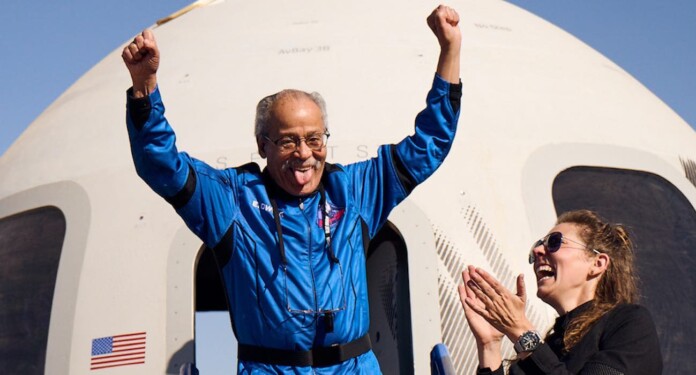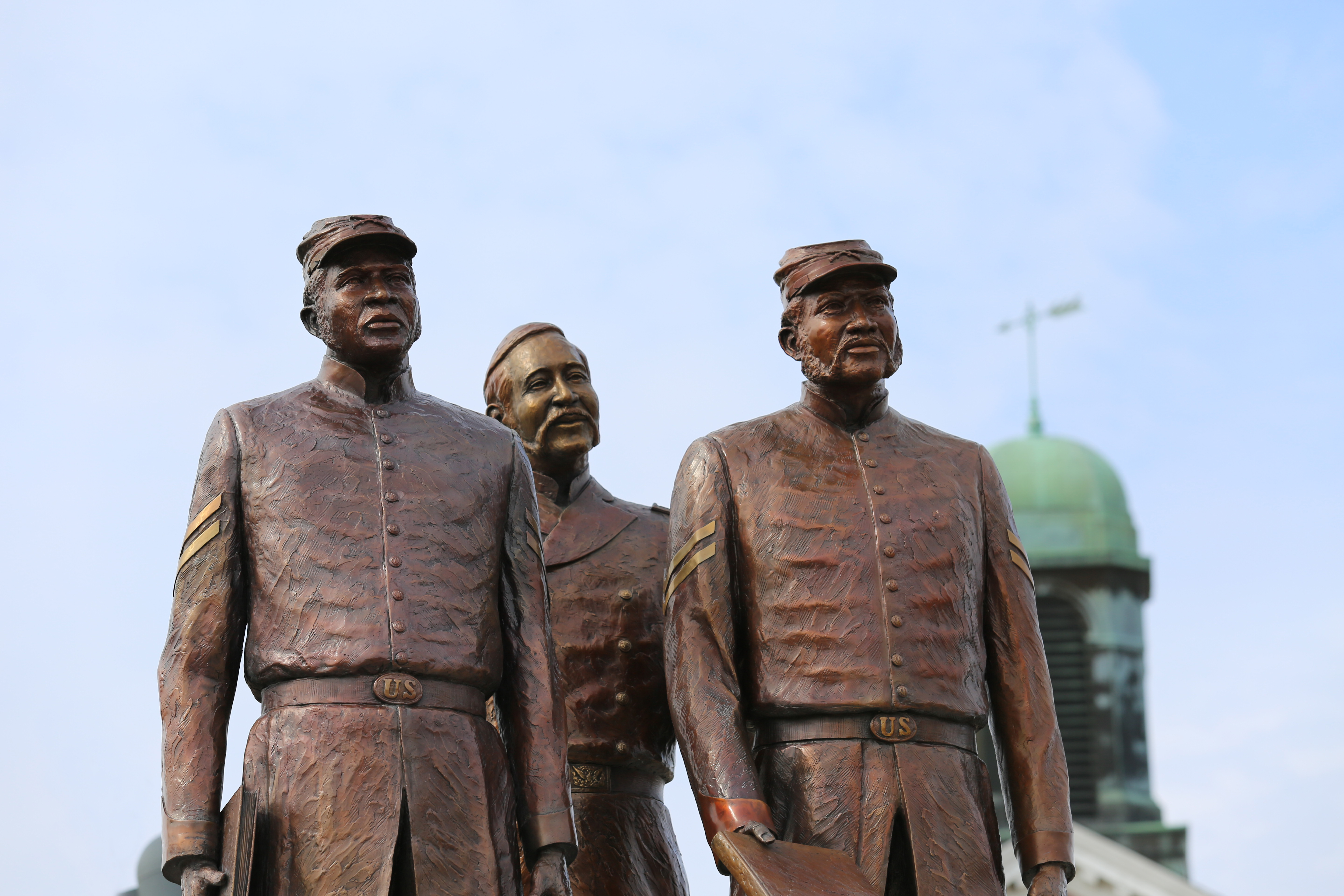This past spring, Ed Dwight made history by becoming the oldest person to travel to space at the age of 90. He fulfilled a lifelong dream rooted in his early aspirations as a pioneering Black Air Force pilot. Today, Lincoln University is paying tribute to Dwight for his groundbreaking achievements and significant contributions to the university through his artistry.

Commissioned by Lincoln University in 2005, Dwight created the Soldiers’ Memorial Plaza in 2007. The impressive 18-foot-tall sculpture profoundly reminds us of the sacrifices made by soldiers from the 62nd and 65th regiments and illustrates their transformation into students. This powerful representation has become a focal point on the LU campus, inspiring generations of students and visitors.

“Through his storied 91 years, Ed Dwight has broken down barriers and set a standard of excellence that instills pride throughout the Lincoln University community,” said Dr. John Moseley, president of Lincoln University. “On top of his lifetime of astonishing achievements, the memorial to Lincoln’s history which he sculpted continues to inspire today.”
Dwight Takes Off
Born in Kansas City, Kansas, Dwight’s journey began with a fascination for mechanics. After earning an engineering degree from Kansas City Junior College in 1953, he enlisted in the U.S. Air Force and eventually rose to the rank of captain. In 1961, he was nominated as a candidate for NASA’s early astronaut corps, but due to the racial barriers of the time, he was not selected. It wasn’t until 1978 that NASA would welcome Black astronauts. In 1983, Guion Bluford became the first African American to travel into space.

While his initial dreams of outer space were deferred, they certainly weren’t extinguished. Over six decades later, with the support of Space for Humanity, a Denver-based nonprofit, Dwight fulfilled his dream of exploring the final frontier, symbolizing resilience and perseverance against all odds.
His artistic legacy extends beyond Soldiers’ Memorial Plaza. He has crafted sculptures honoring notable figures and events in Black history, including works dedicated to Frederick Douglass, the Underground Railroad, Denmark Vesey, and Dr. Martin Luther King Jr.
As Lincoln University celebrates Dwight’s accomplishments, his story powerfully reminds us of the importance of representation, perseverance, and the impact of art in shaping history.
This article sources information from Lincoln University.



